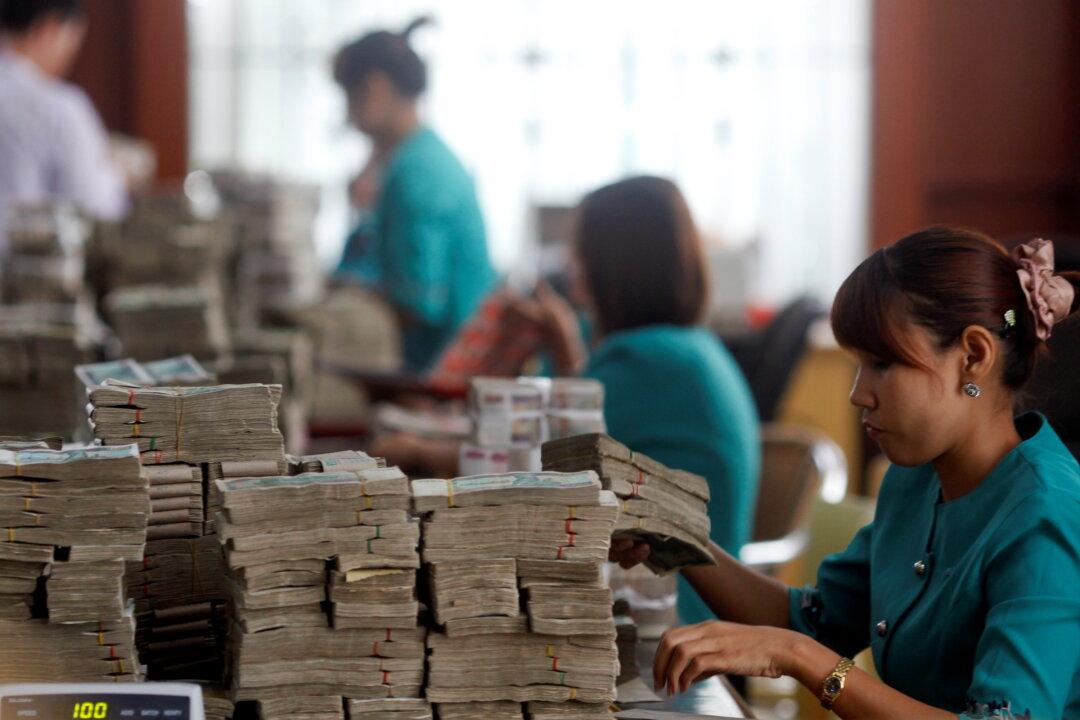Military-appointed authorities in Myanmar are making progress in addressing its currency crisis, with the kyat stabilising and efforts underway to keep prices under control, a senior central bank official said.
The kyat lost more than 60 percent of its value in September, driving up food and fuel prices in a fragile economy that has languished since a Feb. 1 military coup and is on course for a double-digit contraction this year.





